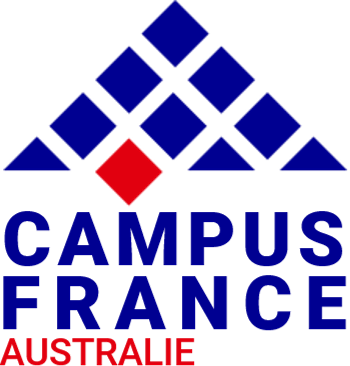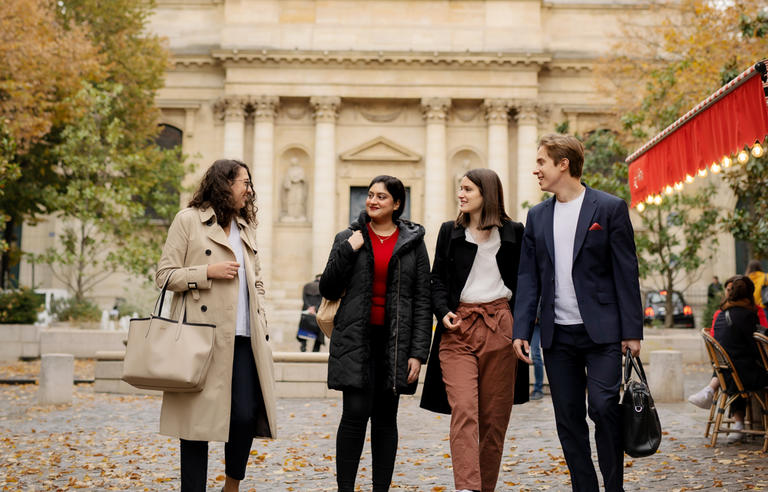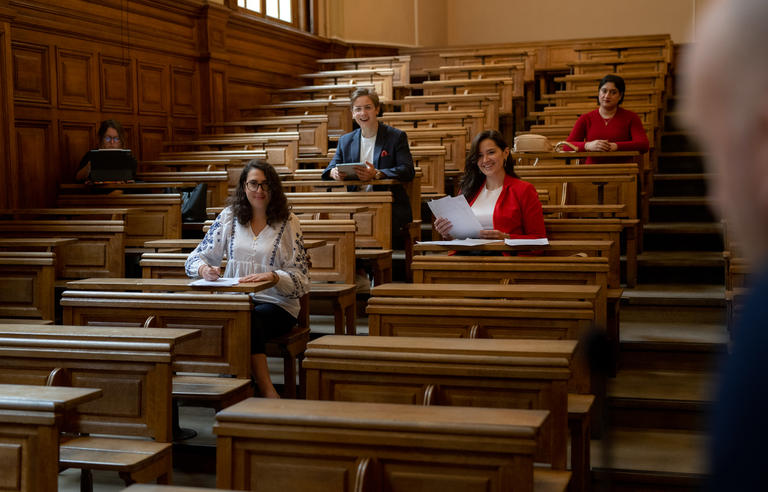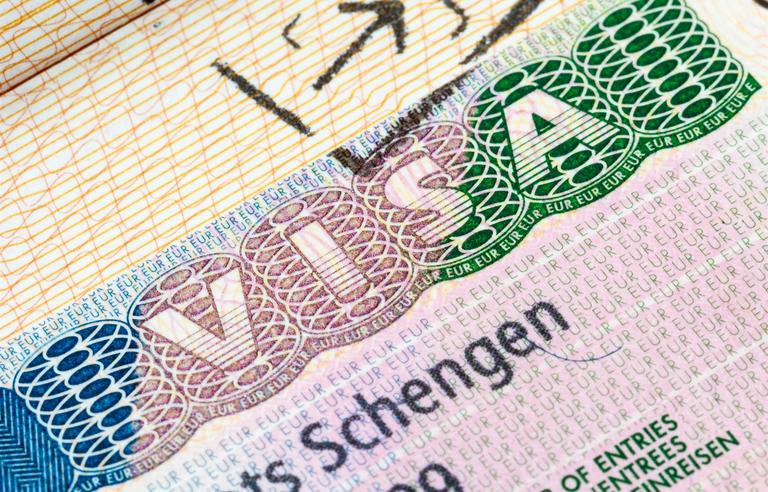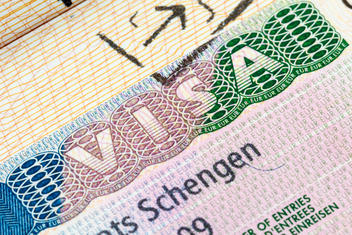Frequently Asked Questions
I’m an Australian student going on exchange soon, do I need a visa?
All information about applying for a visa in Australia is available online at France Visas. Find out your necessary visa type, required documents and more here.
I am applying for a visa, and it asks me for a proof of accomodation. How can I provide that?
The visa process requires proof of accomodation so they have an address in France to contact you if necessary. There are a few situations that work:
- You have a place to stay with friends or family - Provide a letter from the hosts saying they will accomodate you with exact dates.
- You have university accomodation - Provide the letter of confirmation and the address.
- You will search for an apartment when you arrive, and have booked an Airbnb or hotel in the meantime - Write and sign a letter explaining this situation, with clear dates and explaining how you will search for an apartment.
- None of the above - If you are having accomodation difficulties, provide the address of your universities' international relations department building, as they will know how to find you.
I am applying for a visa, and it asks me for a proof of income. How can I provide that?
The proof of subsistence is proof of an Australian account with enough money in (minimum 615€ for every month you will be there, or at least 6 months if you indicate you will have regular income from a student job or parental support). This can be in the form of a recent bank statement with enough money in it for the time you are in France. If your parents or carers will financially support you, they must write and sign a letter explaining this.
If you plan to open a French bank account, you can write another letter saying you will open an account upon your arrival.
Can I take a holiday in another country before arriving in France?
Depending on your citizenship and visa type, you can do whatever you want. However, it is the student's responsibility to ensure they are prepared for their studies in France, and have their visa on time before leaving.
Does Campus France offer scholarships to French students?
Campus France does not offer funding opportunities to French students.
For information about possibilities of funding for French students wishing to study in Australia, please visit the dedicated page of the Embassy website.
Do I need to follow the Etudes in France (EEF) procedure?
The Etudes en France procedure is only relevant for students who are living in a country affected by the procedure. If you are studying in Australia, and you are currently an Australian resident, you do not need to follow the EEF Procedure. Instead, you apply for your program and visa yourself, unless your university helps you.
I want to teach English in France but I’m not eligible for the Language Assistants program?
The language assistants program is aimed at young people up to 35 years old with little teaching experience. If you fall outside the criteria for the program, you can apply to teach in private language schools in France, or become an au pair. Campus France is not responsible for any of those other programs.
Can I work while studying in France at a university?
You are able to work up to 60% of the legal French working week, or 964 hours per year, while enrolled as a student in France on a long stay visa. More information is available here.
Can I go to France to learn French?
Yes, there are more than a hundred language schools in France. You can study in a summer program, an Alliance Française, or do a private language stay.
Find your program to study French in France here.
The French + Sciences program is dedicated to students who want to study French in France and learn about specific scientific or thematic topics, like Gastronomy, Nanotechnology or Marine Biology.
Can I work while studying at a language school or private institute?
Candidates who are enrolled at;
- private language learning schools,
- other private specialised institutions which are not accredited to deliver a nationally recognised degree,
- a foreign university which has an overseas campus in France but delivers a foreign degree,
are generally issued with a long stay visitor visa instead of a student visa. The visitor visa does not grant you permission to work in France.
I’m taking an exam remotely in Australia for a French university. Who can supervise my exam?
In Australia, the Alliances Francaises are the only official exam centers. Contact the Alliance Française in your city to find out if this service is offered. For more information please visit https://www.alliancefrancaise.com.au/contact-your-af/
Will my Australian degree allow me to work / continue study in France?
For information about higher education qualification recognition please check here. Generally you can get a job in many fields as long as you translate the degree into French and speak some French, but be aware that certain fields like engineering, nursing or medicine may require you to undertake further studies or tests.
For more questions, please refer to the guide attached at the bottom of this page, it contains the answer to these questions and more. If you still have questions, please contact us at education.canberra-amba@diplomatie.gouv.fr
Glossary of terms
Below is a list of terms that you will likely see while living in France and may not have encountered before:
- Bail/Contrat de location – lease. This is the contractual document establishing the responsibilities of the lessee and the lessor.
- Caution solidaire / Garant – Guarantor. A person or entity agreeing to pay the rent in the event the renter does not.
- CERFA – This is the name for the formula/paperwork you have to fill out any time you have to go through an administrative procedure. Every different procedure has a different CERFA number – For example you’ll notice that your student visa application form is actually just a CERFA.
- RIB – No, you’re not paying in body parts – this is a document which shows the unique codes for a French bank account (just like a BSB and account N°).
- Dépôt de garantie – Security deposit. The amount requested at the start of a lease, intended to cover the cost of any damage. It is returned at the end of the rental period, subject to conditions.
- Quittance de loyer – Rent receipt showing the details of the amount paid by the renter. Rent and utilities must be distinct.
- Assurance habitation – home insurance. Insurance covering civil liability and any damage due to water, fire, burglary, etc.
- Caisse d’Allocations Familiales (CAF) – Family Allowances Fund. A public organisation that may provide you with financial assistance to help you pay your rent.
- Taxe d’habitation – Tax paid by the occupant of lodging on January 1st of the tax year. The amount varies according to where the lodging is and its size.
- Préavis – Notice. A renter informs the landlord of his/her intention to move out with a certain period of notice prior to leaving the lodging. It is one month for furnished rental lodging and three months for unfurnished lodging, except in metropolitan centres and areas with housing shortages.
- Baccalauréat – This is not the translation of a Bachelor degree! The French Baccalaureate is the high school diploma, equivalent to Year 12 diplomas in Australia. The equivalent undergraduate degree to a Bachelor in France is called a Licence.
Related contents
Recommended items



